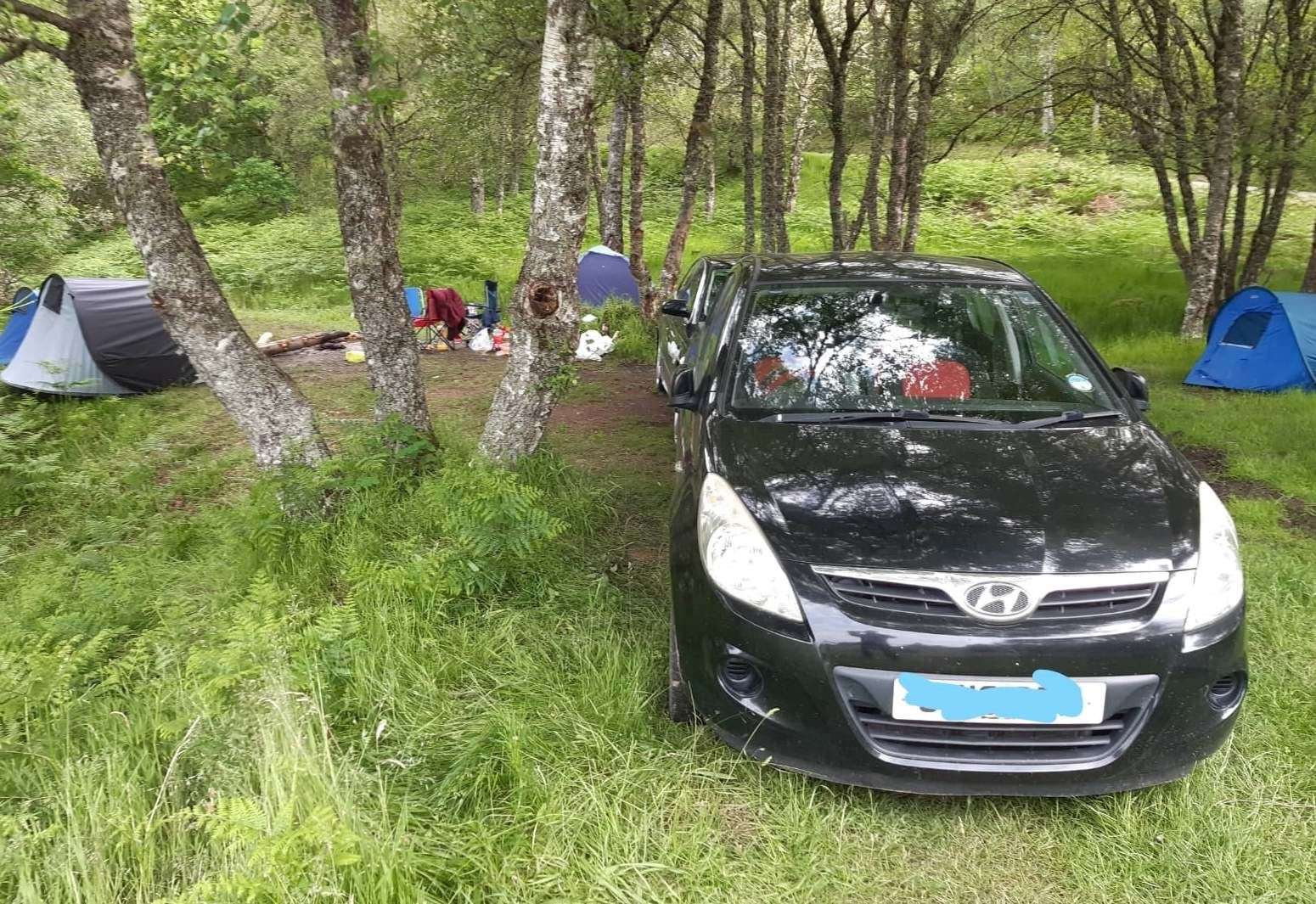
[ad_1]
Highland Council’s new access rangers have hit back after being criticised for tackling some wild campers near Loch Ness.
Pictures of litter and a partly burned log outside their tents were posted on social media by the rangers, who asked the campers to tidy up and move on, before informing police.
It prompted a mixed response, including some scathing comments from the public.
A number of people took issue with the action, suggesting it was over-reach by those charged with protecting the land from irresponsible visitors.
There was, however, a large number of supportive messages and the rangers have now issued a detailed response clarifying what they did and why.
They claimed the campers potentially committed four separate offences including – driving their cars more than 15 metres off road onto land without permission and taking and damaging wood and trees belonging to another person.
They also lit a fire in a public place potentially causing alarm or annoyance and risked littering offences if they did not clear up after themselves. On top of that, the rangers said lighting a fire in woodland area is not just “very high fire risk” given the warnings issued recently about wild fires in dry conditions but contrary to the access code.
They stated on social media: “The previous post regarding Loch Ness appears to have generated considerable comment and discussion.
“Most of it is supportive of the rangers while some reasonably ask for further explanation, others make ridiculous assumptions and misinterpretations of the photos, the Scottish Outdoor Access Code and legislation.
“Some people mistakenly refer to a ‘right to roam’ or ‘right to camp’, there is only a right of responsible access. If you act irresponsibly, you lose your access rights and can be asked to leave, effectively you would then be committing trespass. (Yes, the 1865 Trespass (Scotland) Act still exists and was not revoked, only modified!)
“First and foremost the rangers engage, explain and educate on responsible access rights and that was the primary aim in this and every interaction, the overwhelming majority of which are amiable and well received.
“This occasion was not heavy handed nor were the campers ‘rudely awoken’, just woken. Two of the campers were awake, were asked to come out to talk and others woke up during the discussion.
“It was explained what they were doing wrong and what they had to do to make some amends and that they should tidy up the site and move on. The conversation was amiable and not aggressive on either side, copies of the access code leaflet were left on their windscreens.
“They were beginning to tidy up when the ranger left and arrangements were made to revisit the site later. Their registration number was taken and the police were informed but there was no expectation of police attendance, only to record the incident.”
Their stance was backed by Highland MSP Edward Mountain who argued the key to access was responsibility, saying: “Access rights come with responsibilities but it is clear that an increasing number of people lack a full appreciation of the access code.
“This is one of the reasons why we are seeing more unacceptable incidents of dirty camping or damage to trees or wildlife habitats. No one wants to limit Scotland’s world-leading access rights but we all have a duty to protect the countryside.
“For that to happen I believe it is time to review the effectiveness of the Scottish Outdoor Access Code in promoting good behaviour and I am raising this issue in parliament by lodging a motion for a members’ debate.”
Related story – Highland Council advertises for seasonal posts to help cope with expected surge of visitors once Covid lockdown restrictions ease
Do you want to respond to this article? If so, click here to submit your thoughts and they may be published in print.
[ad_2]
Source link

